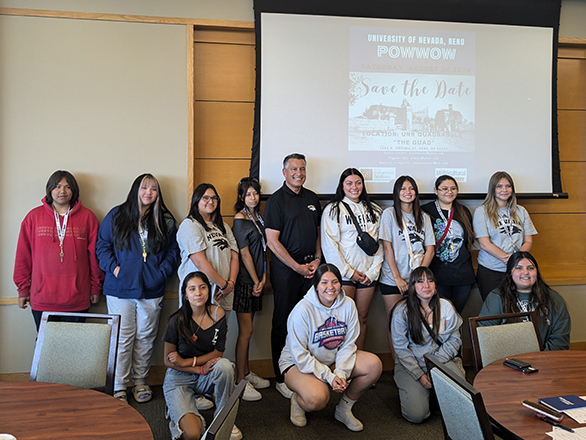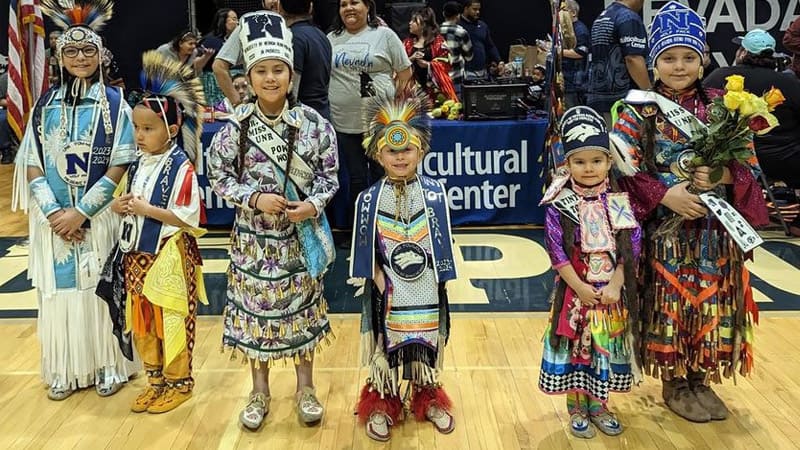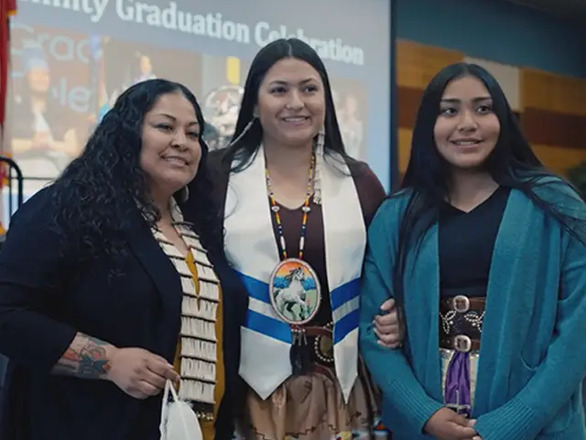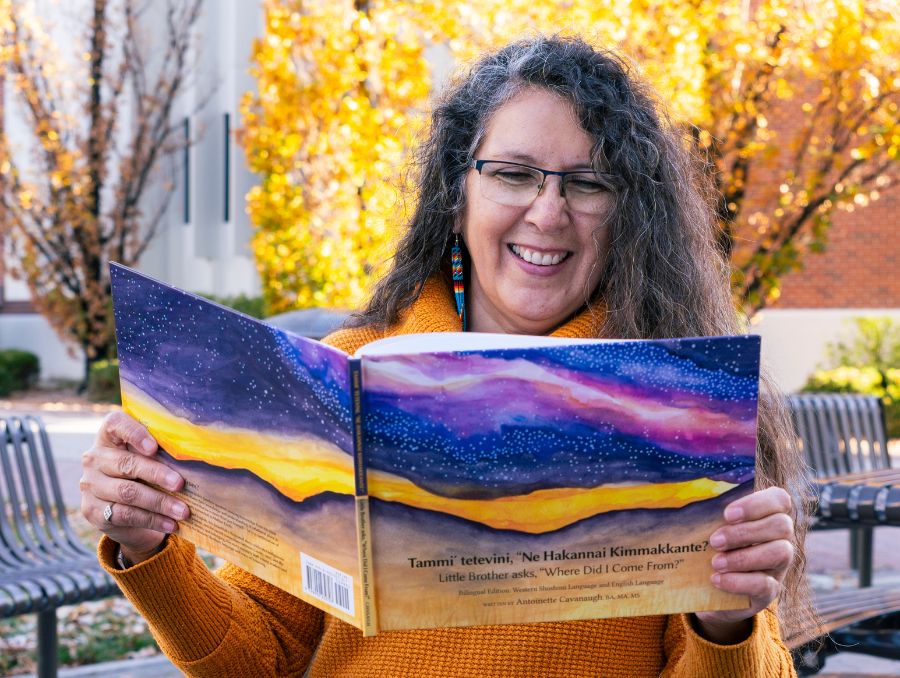
Tribal Students LEAD Program
This program is high school students to learn, empower, achieve and dream as LEADers of the future. LEAD is a culturally enriched, immersive higher education exploration program for Native American students to stay on campus and learn about how to prepare for the University application process, financial aid and degree options.
The Great Basin Mural: Honoring Heritage Through Art
The mural provides a visual representation throughout the years of Native American communities in Nevada, specifically in the Great Basin region and serves as a space for gathering, reflection, and celebration of Native American Peoples of the Great Basin.




